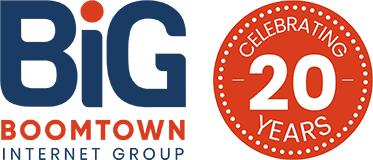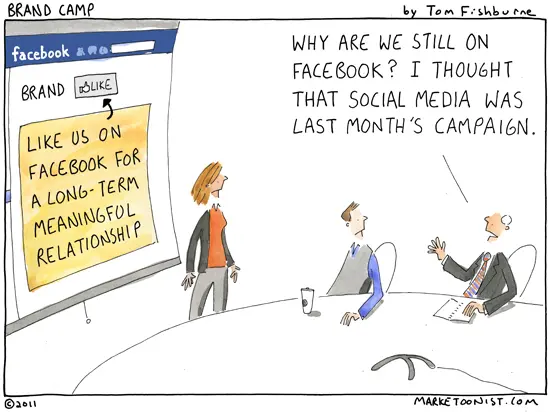Facebook can either be a marketer’s best friend or worst nightmare. While Facebook has made tons of algorithm changes in recent months that have changed the way marketers spend their time and money on Facebook, by understanding these changes we are able to target specific audiences and engage specific groups of people better than ever before.
Here are some ways I’ve found to be extremely helpful at garnering real, measurable success on Facebook in 2016.
Set Reasonable Expectations
Facebook is part of the marketing funnel (often a part towards the top), but it’s never going to perform the entire function of the funnel. It’s unreasonable to expect a person who is casually browsing Facebook for funny or informative posts from friends and family to react so strongly to your ad or organic post that he or she goes to your website and makes a purchase right then and there.
There are many ways to use Facebook in your marketing funnel, but it’s important to have a solid idea of what part of your audience you’re targeting and what you expect from them. And make sure those expectations are achievable – while direct ROI from Facebook may not happen (unless you’re running a really great sale), you can increase your page likes (and therefore the scope of people with whom you have direct contact in the future), your email list (by offering specific content that your audience is interested in), and hopefully encourage your users to take another step down that funnel.
Prioritize Engagement and Clicks
At the beginning of the year, the marketing community was abuzz over the idea of Facebook switching its algorithm to hide posts from business pages and show more posts from people’s friends and family in user News Feeds. This meant more “boosting” posts and running Facebook ads in order to get posts in front of people.
While this strategy worked better than simply expecting organic posts to perform the way they used to, boosting ads and sales also did not seem to drive huge successes for anyone. This is largely because targeting a Facebook audience with direct sales is the wrong approach – Facebook users are not thinking about buying. They’re thinking about browsing and consuming content, participating in conversations, and maybe clicking on an article if it seems relevant to their interests.
More recently, Facebook tweaked its algorithm again. Now, rather than specifically filtering out brand pages and pushing personal pages, Facebook is paying attention to the topics and groups that users are interested in and showing them the content that relates to their interests more frequently. And how does Facebook measure someone’s interest? By their likes, comments, and shares, more broadly known as “engagement.”
When users interact with your content by liking it, commenting on it, or clicking your links, they’re not only prompting your post to show up on their friends’ News Feeds. They’re also telling Facebook’s algorithm, “Hey, this content is interesting to me. I’d like to see more of it, and chances are, others who fall under my demographics and areas of interest would also be interested in seeing more of it.”
Take Advantage of the Advanced Search Algorithm
Facebook currently employs an impressive and unique search feature. When you search Facebook, you’re not only searching the web, but you’re also searching social media. So while on Google, you’d get a link to an important news story, on Facebook, you’ll get that link to the important news story accompanied by the comments that important, verified sources have made about that news story.
So by establishing yourself as a recognizable, trustworthy name in your industry, you can comment on relevant news stories and trending topics and get your brand name to show up in search results.
If you need help tracking how others in your industry are taking advantage of Facebook’s marketing possibilities, contact us! We love helping businesses increase their Facebook presence, build their email lists, and stay on top of the latest trends.




